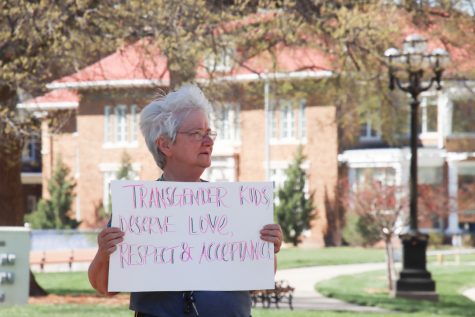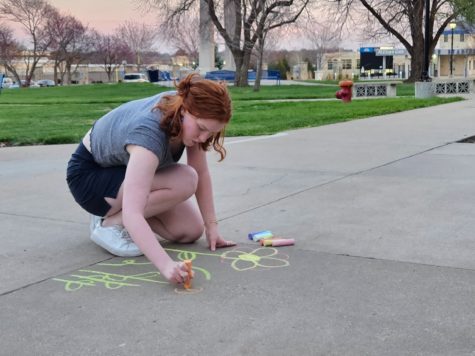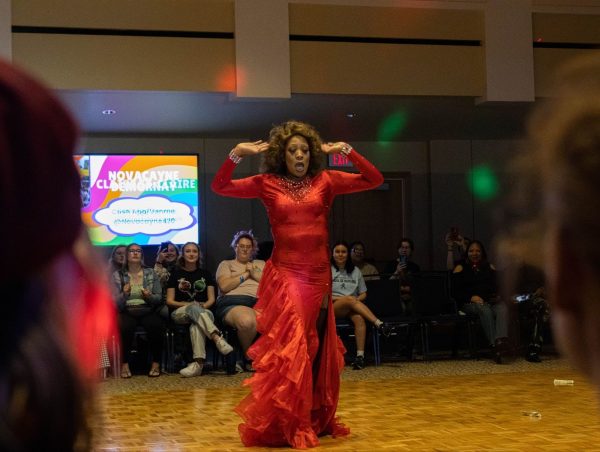Kansas substitute criteria changes to fill schools
With the teacher shortage taking the world by storm, substitutes are trying to fill the gaps. Will this new criteria hurt the education system more?
The crisis of the teacher shortage continues to grow, but there is another rising problem that is intertwined in the Kansas education system: the requirements for substitute teachers are being immensely lowered across Kansas.
“Is it better to have somebody in that classroom than nobody in that classroom?” said Kent McAnally, the director of career services. “Part of me wants to say, ‘No, you shouldn’t compromise the standards for substitute teachers,’ and the other part of me wants to say, ‘We have to have someone in there just to be there.’”
Schools in Kansas are struggling to find teachers to fill the classroom, but when is it reasonable to say anyone can fill their positions?
There are two problems at hand: one being that teachers are struggling to fill classrooms, and the other being that substitutes are now anyone who can fill the role of these absent teachers.
McAnally said that the teacher shortage was bound to happen, but educators were not sure as to when. What builds on the need for substitute teachers is the need for full-time educators.
“Everything sped up when we started dealing with COVID and if teachers had an option, they left,” McAnally said.
Now with an ongoing pandemic and teacher positions wide open, education majors are finding a way to relieve some of the tension while also gaining experience.
“I knew that I wanted to step into the classroom and get a little bit more experience before actually starting my journey as a teacher myself,” said Hannah Beemer, a senior secondary English education major.
Coming from Nebraska, Beemer had no experience with Topeka schools or Kansas schools in general. Her willingness to learn the education system of a different state came when COVID-19 crippled the different opportunities to be in a classroom. With gaining her substitute license, Beemer can work in classrooms from preschool to 12th grade.
Though this experience has been helpful to her future career, Beemer was uneasy that the requirements were lowered.
“I do not agree with the lower requirements for substitute teachers and I thought that the requirements were already too low,” Beemer said. “I think that really goes to show that society thinks anyone can teach, but I do not think that is the case.”
Beemer understands that schools really need the help right now and they want to keep kids in school, but she thinks that substitute teachers aren’t the answer.
“School districts need to focus more on the health of the individuals they have, keeping teachers healthy and encouraging teachers to stay in the workforce,” Beemer said.
McAnally felt the same way. As a former teacher, he explained that having a substitute fill in for a teacher can be problematic.
“I was a music teacher and it wasn’t uncommon for me to be out for something and have a substitute who really knew nothing about music other than turning on the radio in the car,” McAnally said.
In his years of teaching, McAnally experienced students saying things like “you’ll never believe what our substitute did” when he returned to his work.
McAnally explained that substitutes are not there to teach because they do not have the correct training to do so.
Even Beemer was astonished by how little the actual training had covered.
“The training was the bare minimum. It was mainly about the technology the schools are using,” Beemer said.
Though this job seems easy and like anyone can do it, substitutes are often not sure of what exactly they are getting themselves into.
Beemer explained the various roadblocks that come with being a substitute teacher. An example is the smaller age gaps between the older students and the substitutes, which are often a problem that can make it hard to gain respect. One of the biggest obstacles that Beemer mentioned was teachers not leaving plans. This can make things difficult because students will have to sit and wait until something is figured out for them to do.
Though this job may not be for everyone, Beemer and McAnally agree that those going into education should apply.
“I would encourage education majors to apply to be a substitute teacher,” Beemer said. “I don’t think that people who don’t have experience or the want to work with kids should apply to be a substitute just to get a paycheck.”
Substitute teaching is a great opportunity to experience the hard work that educators put into a classroom, but it is a big responsibility and should not be done to help oneself put another dollar away in their bank.
Edited by: Justin Shepard, Ellie Walker
Your donation will support the student journalists of Washburn University. Your contribution will allow us to purchase equipment and cover our annual website hosting costs.














